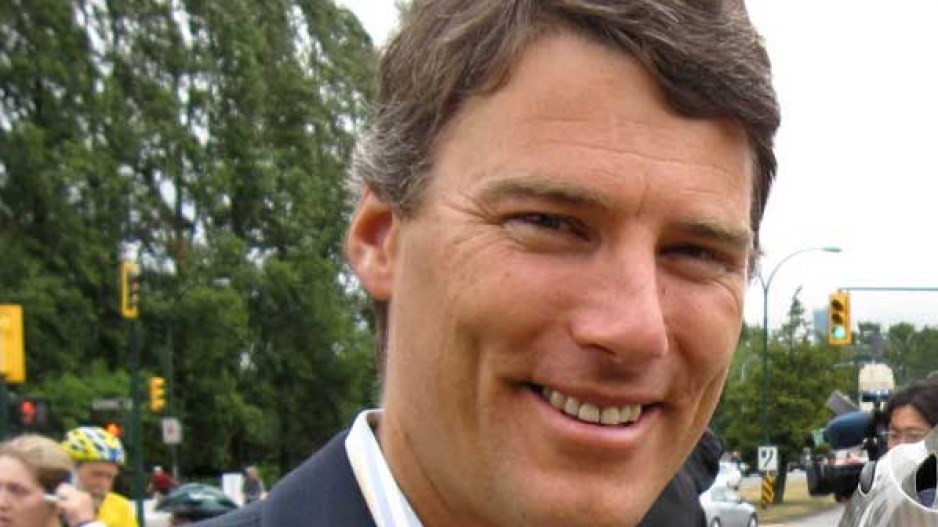Vancouver's business community has its eye on transportation issues and the upcoming transit funding referendum in the wake of election results that saw voters choose a nearly identical city government.
Two-term incumbent Gregor Robertson of Vision Vancouver was re-elected with a comfortable lead over the NPA's Kirk LaPointe. With the exception of former NPA parks board commissioner Melissa De Genova, who won a council seat, and Vision councillor Tony Tang, who lost, council remains the same. Council is now made up of six Vision councillors, three NPA and one Green.
While Vision held on to their majority on council, it was a different story for the parks board, where four NPA commissioners, two Greens and just one Vision candidate were elected. Vision also lost their majority on the school board.
"We’ve got a very big referendum next year and we will be looking for the mayor to take a very big firm leadership role in that," said Iain Black, president and CEO of the Vancouver Board of Trade. "He did say that he would, and the business community, you’re going to see [them] united around the need for a positive outcome for the referendum."
While bike lanes brought in during Vision's past two terms have been a point of contention for many downtown business owners, Charles Gauthier, president and CEO of the Downtown Vancouver Business Improvement Area, said his organization took comfort in the fact that there were no new separated lanes in Vision's platform.
"I'm hopeful we won't see any more separated plans in the downtown and if there are, that we'll be involved sooner," he said. "I think we've all learned how to go about it a lot better."
The upcoming transit referendum will be a key point of focus for the DVBIA, Gauthier said.
The 2014 campaign became too close to call in the last weeks of the campaign. A November 10 poll showed Robertson leading just five percentage points ahead of LaPointe.
After two terms leading a majority Vision council which usually votes as one block, Robertson faced dissent from neighbourhood groups dissatisfied with development plans and criticism that city hall had become closed and secretive.
Black said he was hopeful that Vision had heard those complaints loud and clear and would work on improving transparency around decision-making.
"The decreased majority on council, and the fact that so many voters came out and that you saw a much tighter race than people were expecting, I think that reflects … [a concern] with transparency and consultation," he said.
During the campaign, LaPointe hd promised better community consultation processes and several measures to improve transparency. He took aim at Robertson’s steadfast opposition to the expansion of Kinder Morgan’s Trans Mountain pipeline, saying that Robertson had no jurisdiction over the project as a municipal politician.
LaPointe also criticized Robertson for excluding resource industries like mining from the city’s economic development initiatives; under Robertson, the city has emphasized tech, creative industries and “green” jobs.
"We're going to continue to ensure that it is understood by our civic officials that if you would like an extension of the Broadway line out to UBC, that money will not come from the revenues associated with serving lattes in downtown Vancouver," Black said.
"We have a very proud history in the resource sector in this province … that revenue reliance from those industries will be as important in our future."
For the first time since 2002, left-wing party COPE did not run on a shared slate with Vision but their own mayoral candidate, Meena Wong.
Adding to the crowded field was the Green Party, which ran three council candidates. In the waning days of the campaign, Vision began warning voters that choosing these other candidates could split the progressive vote and allow the NPA to win.
The campaign took a negative turn after LaPointe accused Vision of being corrupt after a recording of a Vision presentation to the union representing some city workers was leaked. The union, CUPE Local 1004, later donated $34,000 to Vision and lesser amounts to several other parties.
Vision fought back with a defamation lawsuit, and the two parties both ran negative attack ads on radio and television.
In yet another twist, Robertson offered a surprise apology to Vancouver residents during the last debate of the campaign and asked voters who were planning to vote for COPE to support Vision.
“While we’ve done a lot of good things … there are also things we haven’t done particularly well,” he said. “For those in particular when I haven’t met your expectations, I am sorry.”
@jenstden




